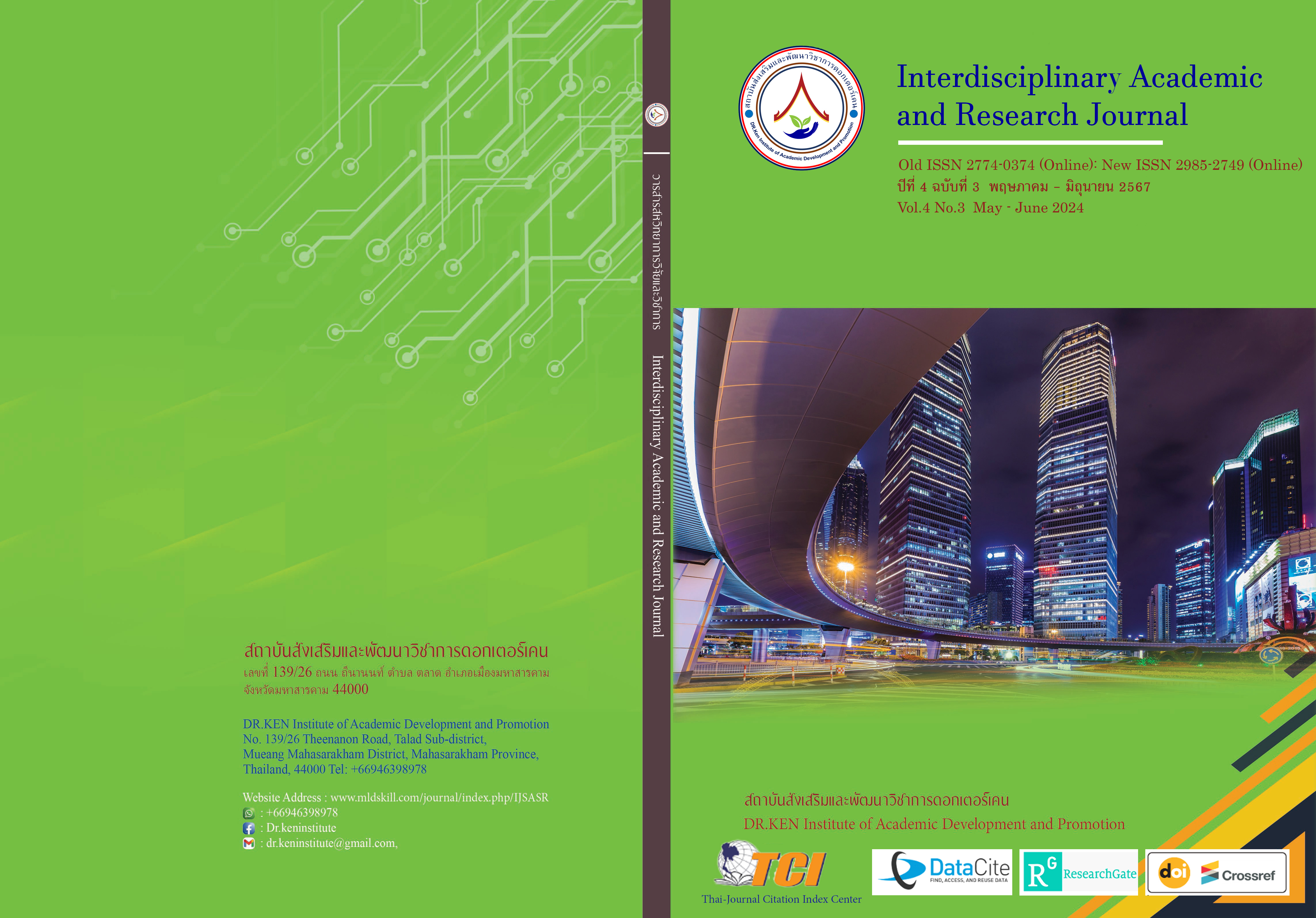The Neutrality of Administrative Adjudicators: A Case Study on the 'Other Qualifications' in Ministerial Regulations Issued Pursuant to Section 13(6) of the Administrative Procedure Act, B.E. 2539, and Its Enforcement
DOI:
https://doi.org/10.60027/iarj.2024.276100Keywords:
Neutrality; , Administrative Adjudication; , QualificationAbstract
Background and Aims: Administrative law refers to forms as procedures that outline numerous rules and guidelines that must be followed precisely when performing administrative operations. Government employees operating under the tenets of neutrality and with the authority vested in them by law must conduct the operation. This research article aims to The Neutrality of Administrative Adjudicators: A Case Study on the 'Other Qualifications' in Ministerial Regulations Issued Pursuant to Section 13(6)
Methodology: This paper has analyzed the Ministerial Regulations Issued Pursuant to Section 13(6) of the Administrative Procedure Act, B.E.2539, and Its Enforcement of the principle of neutrality in administrative adjudication stipulates that the qualifications of parties involved must not exhibit prohibited characteristics as per Section 13 of the Administrative Procedure Act of B.E. 2539 (1996). Subsequent to this, ministerial regulations were enacted in accordance with Section 13(6).
Results: These regulations aim to govern administrative adjudications to prevent biases related to personal dispositions or external influences. However, the legal language utilizing terms like "is" or "has been," without specifying a definite timeframe, could potentially bind adjudicators to a perpetual state of conflict of interest, should they have had any past relationship with the parties involved, in the capacities mentioned. Proving such a status becomes challenging for the parties subject to administrative review, complicating the process of presenting evidence to argue against the adjudicator’s impartiality under Section 14, paragraph 1. Moreover, these ministerial regulations enforce the law on the status of parties without clear evidence in official registrations as recognized legally, complicating the objection process further. The broad drafting scope of these regulations restricts the constitutional rights and freedoms of the parties, making status verification difficult. While intended to fortify against biased administrative adjudication, this approach raises concerns about increased objections to administrative reviews, potentially delaying proceedings without just cause.
Conclusion: Although the purpose of these regulations is to prevent biases, they unintentionally lead to ambiguity that could encourage conflicts of interest and impede the process of impartial adjudication. Their wide reach jeopardizes unwarranted delays in administrative reviews by limiting constitutional rights and making the verification process more difficult.
References
กมลชัย รัตนสกาววงศ์. (2535). หลักกฎหมายทั่วไปของกฎหมายวิธีพิจารณาเรื่องในชั้นเจ้าหน้าที่ฝ่ายปกครองของประเทศสหพันธ์สาธารณรัฐเยอรมัน- ศึกษาประวัติความเป็นมาและแนวคิดทางทฤษฎี. ดุลพาห, 39, 90-91.
กมลชัย รัตนสกาววงศ์. (2539). สาระสำคัญพระราชบัญญัติวิธีปฏิบัติราชการทางปกครอง พ.ศ. 2539. กรุงเทพฯ: วิญญูชน.
เกรียงไกร เจริญธนาวัฒน์. (2556). หลักพื้นฐานกฎหมายมหาชน. กรุงเทพฯ:วิญญูชน.
ชัยวัฒน์ วงศ์วัฒนศานต์. (2540). กฎหมายวิธีปฏิบัติราชการทางปกครอง. กรุงเทพฯ: จิรรัชการพิมพ์.
ภัสวรรณ อุชุพงศ์อมร (2559). ความเป็นกลางของเจ้าหน้าที่ ในการพิจารณาทางปกครอง.วารสารการเมือง การบริหารและกฎหมาย, 8, (1), 479-505
วรพจน์ วิศรุตพิชญ์. (2540). ข้อความคิดและหลักการพื้นฐานในกฎหมายมหาชน. กรุงเทพฯ: นิติธรรม.
วรพจน์ วิศรุตพิชญ์. (2540). หลักการพื้นฐานของกฎหมายปกครองในคู่มือการศึกษากฎหมายปกครอง. กรุงเทพฯ: สำนักอบรมศึกษากฎหมายแห่งเนติบัณฑิตยสภา.
วรพจน์ วิศรุตพิชญ์. (2541). เจ้าหน้าที่ซึ่งมีอำนาจทำการพิจารณาทางปกครอง.ใน รวมบทความทางวิชาการทางกฎหมาย ว่าด้วยวิธีปฏิบัติราชการทางปกครอง พ.ศ. 2539. กรุงเทพฯ: วิญญูชน.
วรพจน์ วิศรุตพิชญ์. (2543). สิทธิเสรีภาพตามรัฐธรรมนูญแห่งราชอาณาจักรไทยพุทธศักราช 2540. กรุงเทพฯ: วิญญูชน.
Downloads
Published
How to Cite
Issue
Section
License
Copyright (c) 2024 Interdisciplinary Academic and Research Journal

This work is licensed under a Creative Commons Attribution-NonCommercial-NoDerivatives 4.0 International License.
Copyright on any article in the Interdisciplinary Academic and Research Journal is retained by the author(s) under the under the Creative Commons Attribution-NonCommercial-NoDerivatives 4.0 International License. Permission to use text, content, images, etc. of publication. Any user to read, download, copy, distribute, print, search, or link to the full texts of articles, crawl them for indexing, pass them as data to software, or use them for any other lawful purpose. But do not use it for commercial use or with the intent to benefit any business.
















.png)


